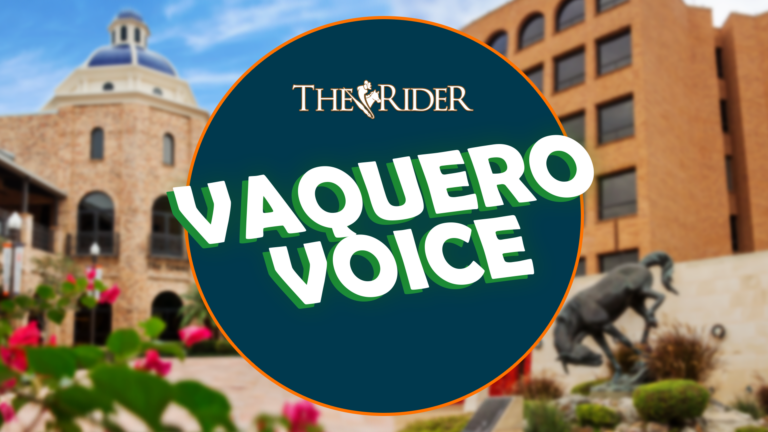
Last fiscal year, Engaged Scholarship and Learning funded 96 student projects, and is looking to fund more during its Oct. 8-Nov. 2 project submission period.
The department offers grants to students who would like to complete undergraduate research or creative works.
Program Coordinator Christina Chavez said there are several requirements to apply for the Engaged Scholar Award (ESA) grant.
“It has to be a student in good [academic] standing. They must have a faculty mentor … from UTRGV, and the student has to be an undergraduate student at UTRGV as well,” Chavez said. “[Students] must also obtain any type of approval that involves a review board if necessary. Some research projects, or other projects, require training or [an] institutional review board to conduct those types of research projects.”
Chavez recommended that students who want to have the best shot possible at having their project accepted should contact the department before the Nov. 2 deadline.
Students who are struggling to find a faculty mentor can attend a workshop.
“It’s called Find a Mentor. So, they can go to that and get more insight, more information and really just getting in contact with us. We’re happy to just walk students through the opportunity in submitting their project.”
The next workshop is scheduled from 12:10 to 1:20 p.m. Thursday in BMAIN 1.220 in Brownsville and ESTAC 1.102 in Edinburg.
Chavez said the projects that stand out the most to her are those that integrate the sciences and the arts.
Valeria Treviño, an anthropology junior, and Yaw Sam, an international business junior, completed ESA undergraduate research projects over the summer.
“A lot of [anthropology] students do not have the opportunity to do research before they even graduate. So, for me, it was a great opportunity to enhance my résumé,” she said.
Treviño’s project is titled, “The Influence of Language in Southern Moroccan Culture.”
“I went abroad during the summer. I went to Morocco; it’s in northern Africa,” Treviño said. “I stayed there for two months doing research.”
She studied the language’s influence on the culture.
“In Morocco, it’s a very multilingual society because it’s in northern Africa and it has a long history of colonization,” Treviño said. “So, there’s languages there, like Arabic, French, Spanish, even Portuguese. So, there’s a lot of diversity, and a lot of people from Europe … to spend retirement.”
Treviño explained she wanted to see how the languages interact and are used.
“I wanted to observe how the cultures interact, how languages have a culture identity for each person, even though they all consider themselves to be Moroccans,” she said.
The student said her mentor, Margaret Graham, a professor in the Anthropology and Sociology department, helped her.
“At least once a week, we were sending, exchanging emails,” Treviño said.
For her project, she observed and journaled every aspect of the culture and people she saw during her time in Morocco.
“After I came back, I spent around two weeks putting together everything and doing my analysis of the information that I gathered,” she said.
Treviño made several conclusions about how women speak differently to each person, not only in their tone but words, too.
“Some women … they were indigenous women from Morocco … they come to the city and they don’t teach their own language, the Berber language, to their children. … They want them to speak Arabic,” she said.
International business junior Sam also completed undergraduate research in the education field. He studied how the lack of technological resources affects students’ education.
“I decided to choose that research because I grew up in Ghana, in West Africa,” Sam said. “And growing up, I realized that there’s a lot of kids that don’t have access to computer literacy.”
He said the schools that had fewer academic resources did less well in academics.
“It wasn’t easy because I’m here in the United States, and I was doing research in Ghana,” Sam said. “So, I had a couple of people in Ghana do the data collection.”
After data collection, Sam compared the results of schools that have resources to those that do not.
“I’ve always been passionate about IT, and so, it got me some insight into what I can do to help people,” he said. “After everything, I realized that these students that don’t have access to resources are most likely to drop out of school [or] perform really poorly in the upcoming years.”
Sam decided to establish a nonprofit agency, called SPREADiT, to help mentor students in the field of IT and help provide resources.
“We raise funds, sometimes with our own money, go into the schools and teach them, or we will go ahead and establish [an IT] lab for them,” he said.
Sam also applied and was accepted into the three-day Clinton Global Initiative Conference due to his project.
For more information about ESA and how to apply, contact christina.chavez@utrgv.edu or visit https://www.utrgv.edu/engaged/esa/index.htm.






